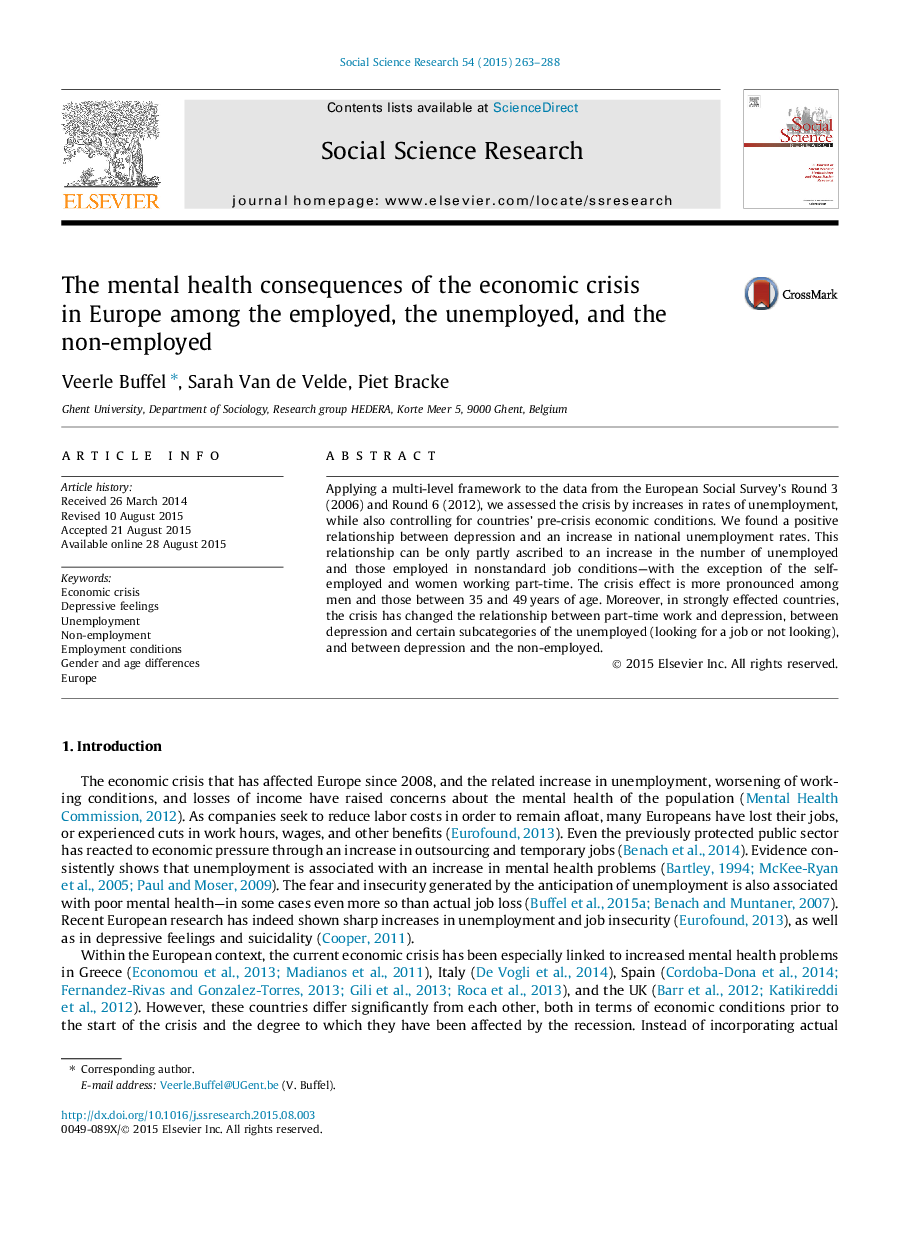| Article ID | Journal | Published Year | Pages | File Type |
|---|---|---|---|---|
| 955626 | Social Science Research | 2015 | 26 Pages |
Abstract
Applying a multi-level framework to the data from the European Social Survey's Round 3 (2006) and Round 6 (2012), we assessed the crisis by increases in rates of unemployment, while also controlling for countries' pre-crisis economic conditions. We found a positive relationship between depression and an increase in national unemployment rates. This relationship can be only partly ascribed to an increase in the number of unemployed and those employed in nonstandard job conditions-with the exception of the self-employed and women working part-time. The crisis effect is more pronounced among men and those between 35 and 49Â years of age. Moreover, in strongly effected countries, the crisis has changed the relationship between part-time work and depression, between depression and certain subcategories of the unemployed (looking for a job or not looking), and between depression and the non-employed.
Keywords
Related Topics
Social Sciences and Humanities
Psychology
Social Psychology
Authors
Veerle Buffel, Sarah Van de Velde, Piet Bracke,
